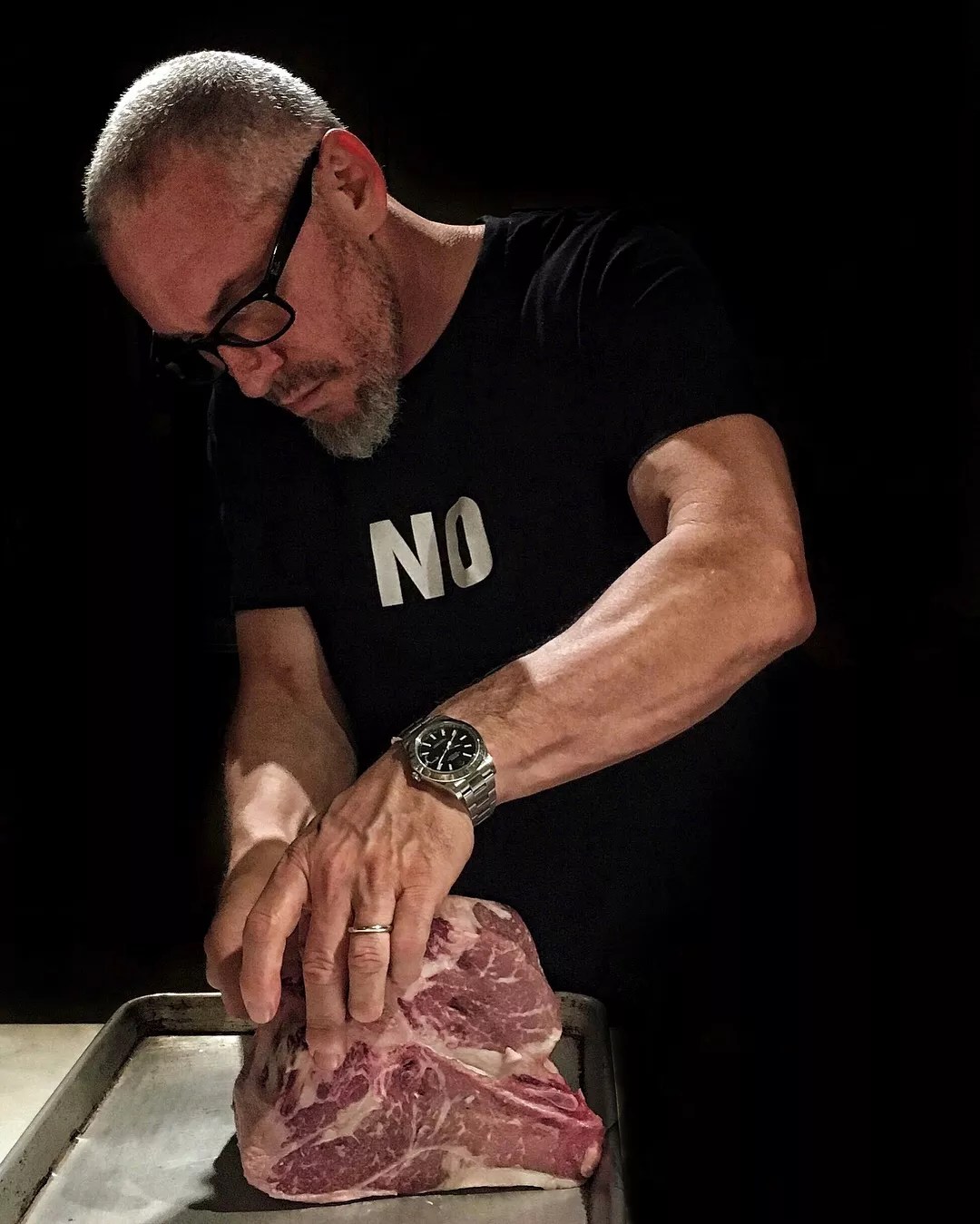
Courtesy of Scott Conant

Audio By Carbonatix
In the past few weeks, two high-profile chefs with a Miami presence have announced the closing of their respective eateries.
New York-based chef Andrew Carmellini announced that his Miami Beach outpost of the Dutch would close at the end of April. The restaurant, located at the W South Beach, opened in 2011 and quickly earned a reputation for its innovative cocktails, American cuisine, and fantastic pies. A statement issued by David Edelstein, owner of the W South Beach, said executive chef Joshua Gripper will continue his role as executive chef at the utilitarian-sounding the Restaurant at W South Beach.
Just a few weeks prior, venerable chef and Nobel-prize nominee José Andrés closed Bazaar Mar at the SLS Brickell, though his South Beach establishment, the Bazaar by José Andrés, is still packing people in.
In the past few years, Miami has seen big names open and close restaurants in hotels. Successful chefs and restaurateurs like Alex Guarnaschelli, Spike Mendelsohn, and Masaharu Morimoto all opened and closed eateries on the Beach in recent years. On the other hand, Scott Conant’s Scarpetta, which opened at the Fontainebleau Miami Beach in 2008, continues to thrive.
Conant was saddened at the news the Dutch would close. “It’s a restaurant that I go to when I’m in town,” he says, adding that it might simply be a case in which a restaurant’s contract with a hotel has run its course. He explains that restaurant and hotel owners negotiate contracts for a set length of time, usually about five years. “Sometimes the hotel ownership simply want a change.”
Conant also cites the fact that Miami’s dining scene has evolved to focus on home-grown chefs. “I also see a paradigm shift where local chefs are making a name for themselves. That’s moving forward a bit more than in the past. Sometimes it just makes sense to have a local person there. We chefs from out of town slap our names on a restaurant and we are overwhelmed – I’m just speaking from my own experience, but it’s hard to nurture a business long distance. Sometimes ideas just don’t stick.”
The chef, who is frequently seen on Food Network shows but eschews the moniker of “celebrity chef,” says running any restaurant comes down to the food and good service. “I think my intention from day one was to create a service culture at Scarpetta,” he says. He notes that Miami restaurants can falter when it comes to service, but that it really is the key to maintaining a repeat clientele.

Chef Michael Schartz
The Genuine Hospitality Group
Michael Schwartz, who will open the Traymore at the Como Miami Beach hotel in the next few months and is planning a new eatery called Tigertail + Mary in Coconut Grove, says the success of a hotel restaurant depends on one’s ability to train staff down to the line level. “If I do a licensing deal with an operator or have a partnership, it doesn’t matter how the deal is written. The guest doesn’t want to hear it. They’re coming because my name is on the door.” As such, Schwartz says it’s his obligation to provide the best food and service. “It’s all those little details that make the experience.”
Though Schwartz says he’s opened many restaurants, he still gets emotionally invested in each one. “We’re not mailing it in. We are 100 percent involved.” Still, he says business is business and you can’t get caught in the past. “When we closed Genuine Pizza in Atlanta, I wasn’t happy about it, but I wasn’t torn up. I think part of it is experience in business.”
The chef also acknowledges that sometimes chefs get too creative in their menus when a weary traveler really wants a good burger. “At the end of the day, it’s a hotel and people want to be comforted. If you can toe the line between the guests’ needs and what a chef wants to make, that’s ideal.”
In the end, however, Schwartz says a chef could do all the right things and have a successful restaurant at a hotel, and it still might not work out. “Sometimes a hotel brand owns a property, sometimes they operate them, and then there are partnerships. When hotel ownership changes, the powers might just want to cancel agreements that they don’t want to inherit and they might pull the plug on a restaurant that’s doing good.”
The takeaway, it seems, is that even though hotel restaurants have their own set of business rules, the fundamentals of running a restaurant are the same when it comes to pleasing patrons. “I think when you’re a nationally recognized talent that’s a draw, but I don’t think that’s enough,” Conant says. “It’s up to my team to convince them to return again and again. Great service is the driving force.”